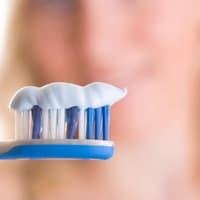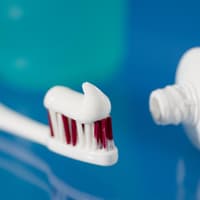
Periodontitis: This inflammatory change in the gums is caused by bacteria. The disease comes on gradually and the first signs are bleeding gums, bad breath and sensitivity to pressure. Half of people over the age of 35 suffer from it - many without even knowing it. Periodontitis increases the risk of coronary artery disease and stroke by 25 percent each. In diabetics, blood sugar levels fluctuate greatly due to the inflammation. Periodontitis also increases the risk of premature birth or miscarriage.
Inflammation: Cardiovascular disease, kidney damage or inflammation of the heart muscle can occur if the bone tissue of root-treated or extracted teeth becomes inflamed unnoticed. A so-called Orotox test can provide information as to whether there is inflammation in the bone.
Fillings: Just like dead teeth, they can trigger chronic diseases for which there is no recognizable cause. Even if you have had amalgam or ceramic in your mouth for a long time and have never suffered from any symptoms: Sometimes the reactions only show up later. There are around 800 alloys, some of which contain mercury, copper, nickel or chromium and can only trigger allergies after a long period of time. And not everyone can tolerate the synthetic resin used to bond ceramic fillings.
Temporomandibular joint: This is the most heavily loaded joint in the body. If a tooth is missing, a filling is too high or dentures are not fitted correctly, asymmetry occurs, which can lead to back pain and misalignment of the body. It can also cause dizziness and even tinnitus.
Prevention: You should go for a prophylaxis once a year and have your teeth professionally cleaned (50 to 80 euros).
You may also be interested in this:
Bleaching: Methods, risks & costs of teeth whitening
Achieving healthy gums with ease
Triclosan in toothpaste and co.: How dangerous is the substance really?
Toothpaste with fluoride: How dangerous is the substance?
Grinding your teeth at night: What helps against bruxism?
Teeth at risk: you should stop doing these things






